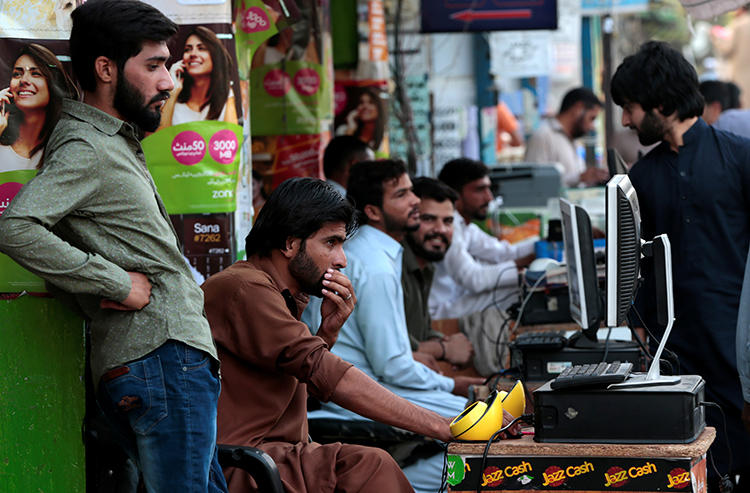Washington, D.C., February 13, 2020 — The Pakistan government should immediately roll back a set of social media regulatory measures that were passed in secret, the Committee to Protect Journalists said today.
On January 28, the federal cabinet approved the “Citizens Protection (Against Online Harm) Rules, 2020,” a set of regulations on social media content, without public consultation; the measures were enacted in secret and were reported yesterday by The News International, an English-language daily.
A copy of the regulations, which was leaked online, shows that the rules empower the government to fine or ban social media platforms over their users’ content. The regulations provide for a National Coordinator to be appointed within the Ministry of Information and Telecommunications responsible for enforcing the rules.
In the text of the regulations, the government claims the rules were approved under the authority of the 2016 Pakistan Electronic Communications Act.
“These stringent but vague rules approved by Pakistan’s federal cabinet threaten the ability of journalists to report the news and communicate with their sources,” said Steven Butler, CPJ’s Asia program coordinator. “The cabinet should immediately reverse course and seek broad consultations with legislators and civil society, including the media, on how to proceed with any such regulations.”
The regulations require social media companies including Facebook (which owns WhatsApp), Twitter, and Google (which owns YouTube), to establish representative offices in Pakistan to answer complaints filed by the National Coordinator.
The companies are also required to remove content deemed objectionable by the National Coordinator within 24 hours, and to provide to the regulator decrypted content and “any other information” about users on demand.
The companies are also made responsible for preventing the live streaming of any content “related to terrorism, extremism, hate speech, defamation, fake news, incitement to violence and national security.” If a service is does not comply, the National Coordinator is granted the power to block services and levy fines of up to 500 million rupees ($3.24 million).
The regulations do not specify how encrypted services such as WhatsApp would be able to comply with the rules.
Firdous Ashsiq Awan, special assistant to the prime minister on information and broadcasting, said in a press conference today that the regulations were aimed at protecting citizens’ interests and national integrity, and said the government would not take any steps against users’ interests, according to news reports.
Senator Mustafa Nawaz Khokhar, a member of the opposition Pakistan People’s Party and chair of the senate Human Rights Committee, told CPJ via messaging app that the rules were seen “as an attempt to further restrict space of free discourse in Pakistan,” citing censorship imposed on the media under the current government.
He said the Pakistan People’s Party would oppose the rules in the parliament and the courts.
Media Matters for Democracy, a local organization that promotes press freedom, said in a statement that the rules were an attempt to silence political opposition and critics, and expressed doubt that social media companies would comply.
A separate statement by the Digital Rights Foundation, which promotes internet safety, described the rules as a “blatant violent” of free speech provisions in Pakistan’s constitution and expressed concern that the rules would lead to self-censorship.
On February 11, Pakistan’s Senate Committee On Human Rights rejected legislation that would have empowered the country’s broadcast regulator to regulate internet and digital content, according to reports and Senator Khokhar.
